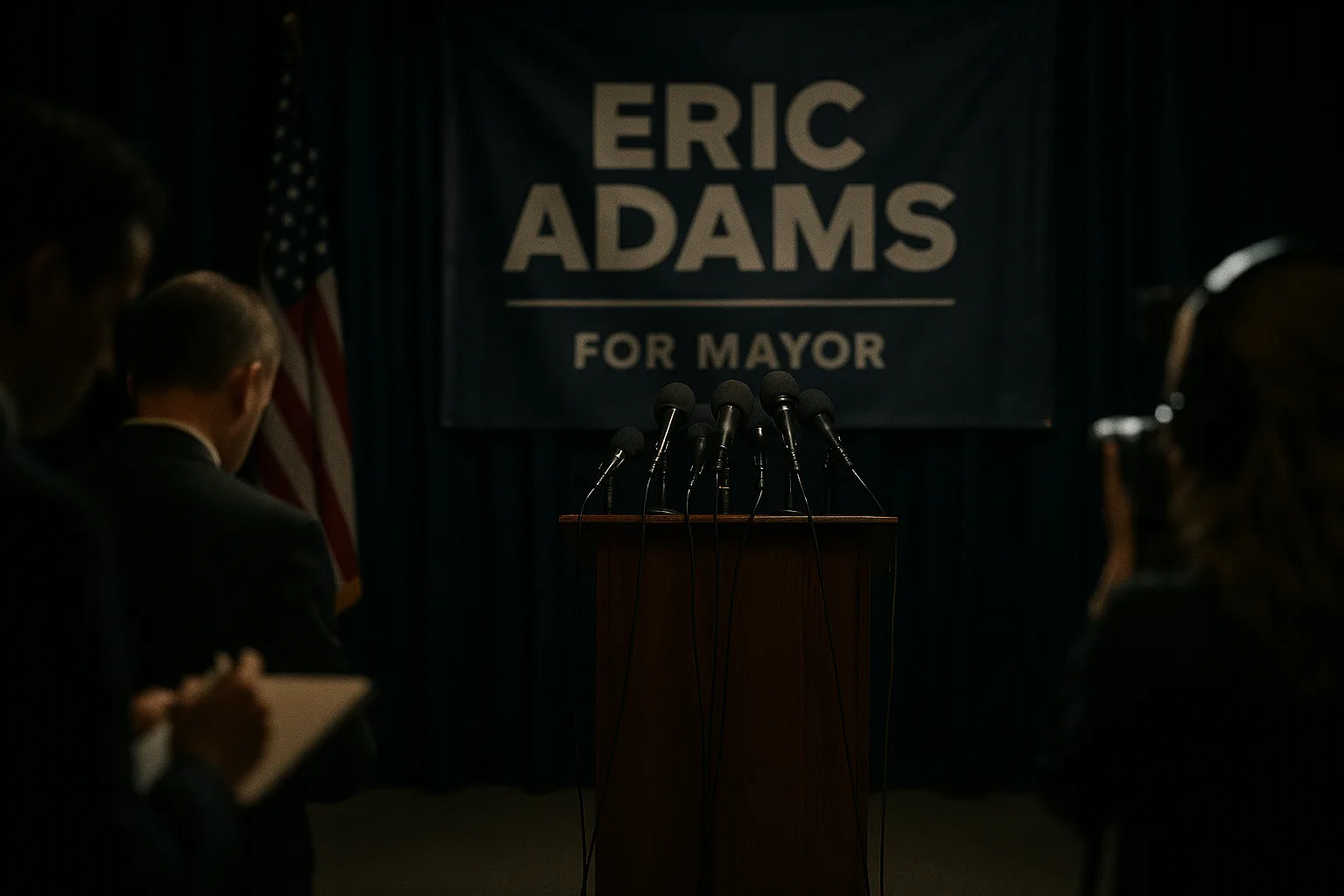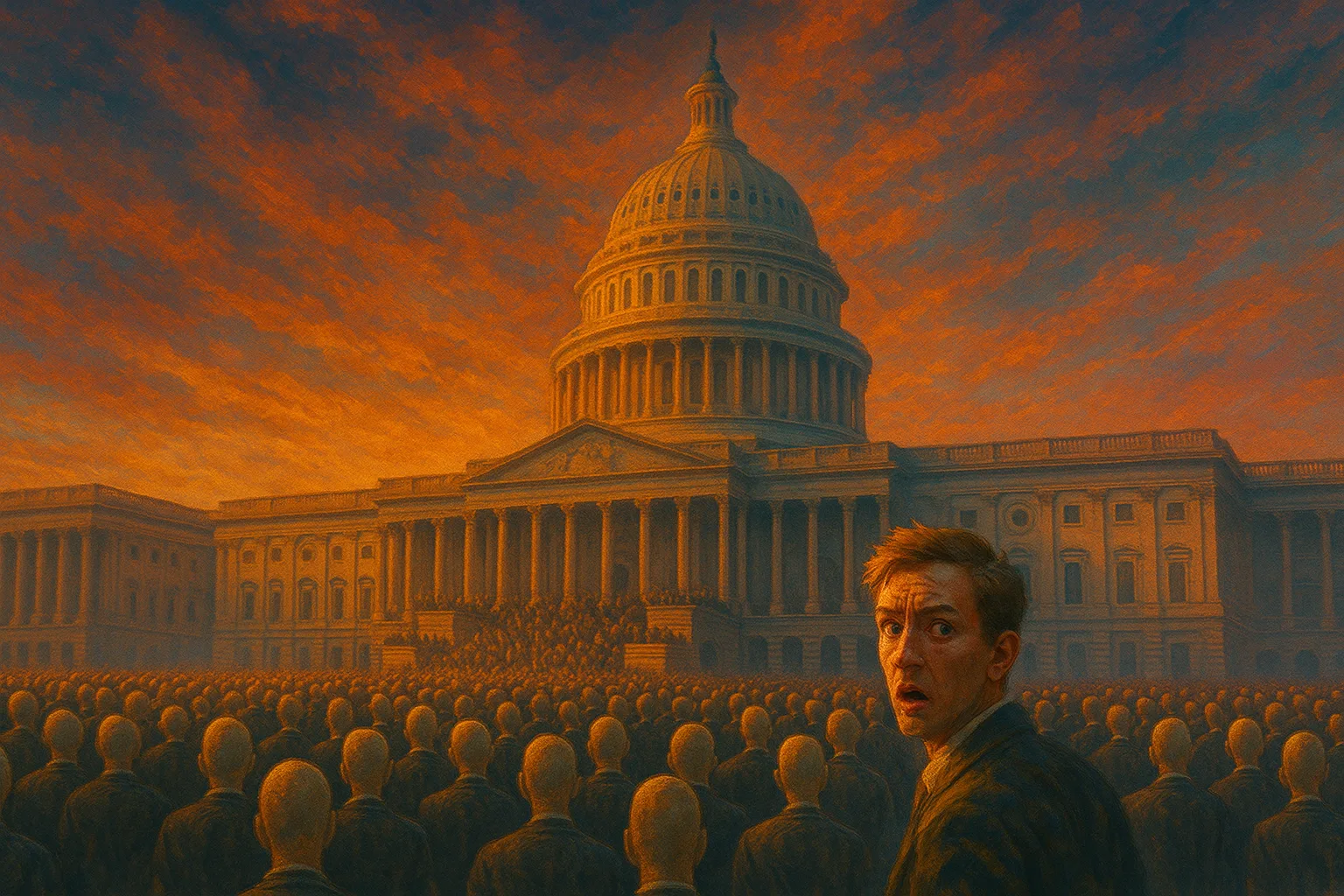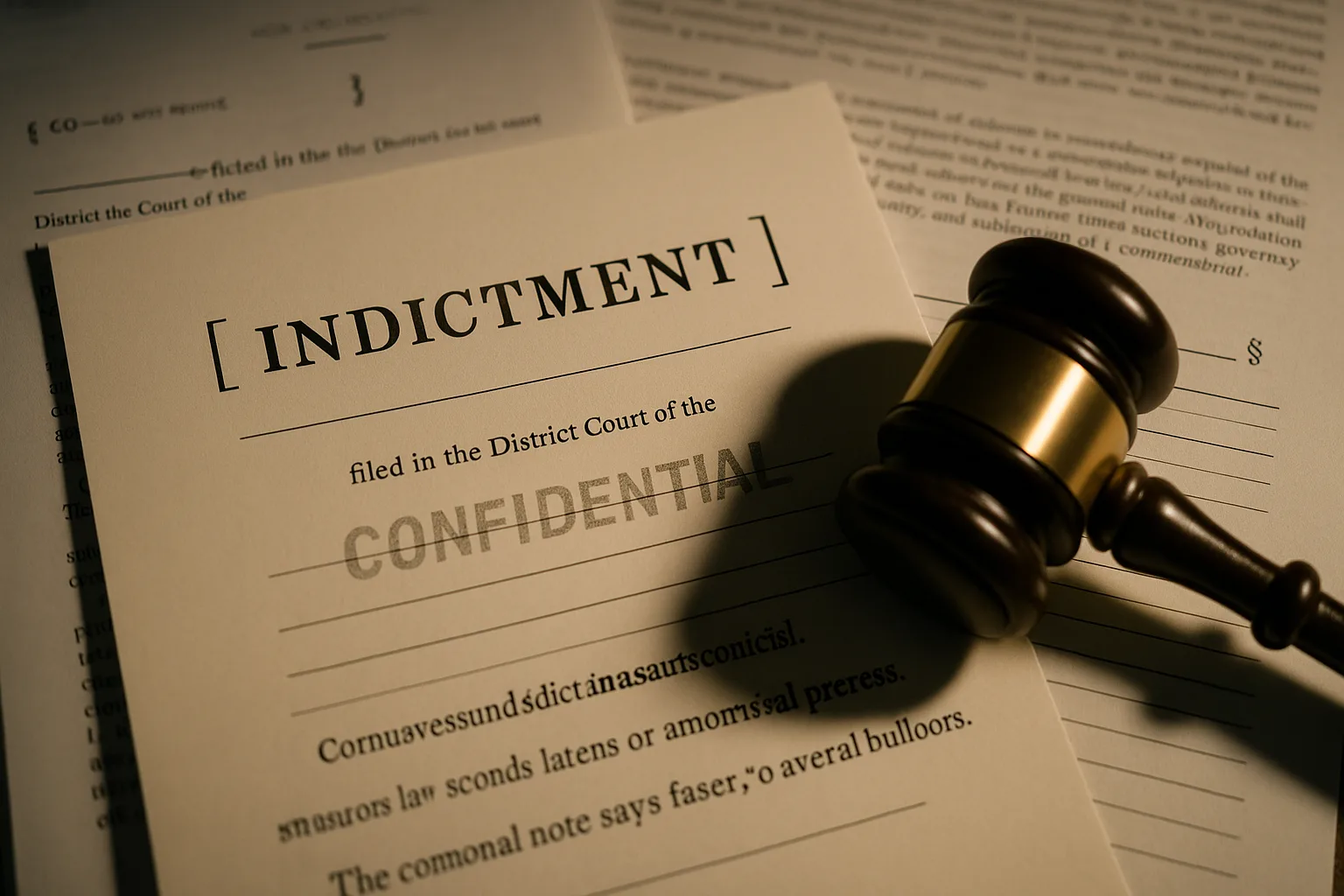Eric Adams has bowed out of the New York City mayoral race, citing mounting pressure and political headwinds. That’s the official line. But as any grizzled reporter knows, when a politician says “I can’t continue my campaign,” what they really mean is “the walls were closing in and the smoke-filled rooms had already voted me out.”
The Public Story
Adams’ statement sounded polished, almost scripted. He spoke of “listening to the will of the people” and “knowing when to step aside.” Translation: the donors stopped picking up the phone, the polling numbers stopped lying, and the knives came out. Politics in New York doesn’t hand you a clean exit. It shoves you out the side door and tells you to smile on the way down.
The Private Story
Sources close to the campaign tell me the pressure wasn’t just external. Party operatives were whispering to allies, “Get out now, or we’ll make sure you’re remembered for the scandals instead of the policies.” That’s not advice — that’s a threat dressed up in concern. The campaign coffers didn’t just dry up by accident. They were turned off like a faucet, and the pipes lead straight back to the same insiders who crowned him two years ago.
One consultant, who insisted on anonymity, put it bluntly: “He had enemies everywhere — Albany, City Hall, even in his own living room. The only thing keeping him in was stubbornness, and stubbornness doesn’t pay for TV ads.”
The City Reacts
New Yorkers, naturally, shrugged. This city has lived through worse: financial collapse, blackouts, baseball curses. A mayor dropping out mid-race barely moves the meter. The chatter in the bodegas was less about Adams’ exit and more about whether the coffee price went up again. Cynicism is New York’s second language, and this news only confirms what most people assumed: the system eats its own.
What Comes Next
In the short term: chaos. In the long term: also chaos. Power brokers are already recalculating their bets, searching for a new face they can shove into the spotlight. Expect backroom auditions, loyalty tests, and whispered promises of “we’ll take care of you” in exchange for bending the knee. None of it will serve the people of the city, but all of it will serve the machine.
The Grumpy Journalist’s Verdict
Eric Adams is out, but the rot that forced him out is still in. This isn’t just the story of a candidate quitting. It’s the story of a system that treats democracy like a Broadway show: scripted, cast by insiders, and closed when the reviews come in bad. The curtain has dropped on Adams, but the theater is still running — and the audience, once again, is left holding the bill.









